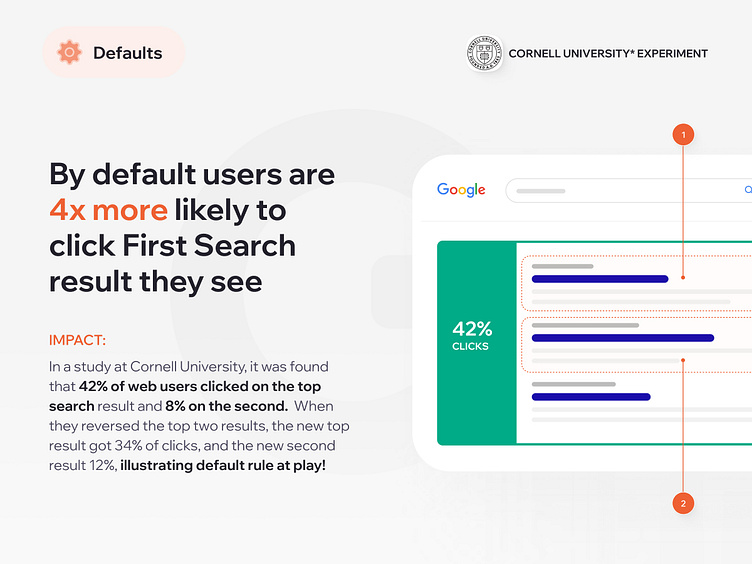Defaults - When people tend to stick with the way things are
What is Default?*
Default bias is when people tend to stick with the way things are or choose the option that doesn't require them to do anything extra, just because it's the way things are by default. It's like going with the flow without really thinking about other options.
Think about the last time you set up a new smartphone, faced with an array of settings options: adjusting screen brightness, setting volume levels, configuring notifications, and more. Instead of fine-tuning each setting, you might have found yourself opting for the pre-configured or default settings.
This decision-making process shows the subtle yet profound impact of defaults. They often serve as the easiest path in a sea of choices, especially when we are either overwhelmed or uncertain.
See how this behavioral principle is used to impact your perception and motivation in UX.
See detailed breakdown on Behance
See detailed breakdown with all examples on UserMindful.Design
------------------
On Principles:
Read about Social Proof and see how it influences your decision-making through the behavior and opinions of others.
Read about Endowment Effect and how it's used to keep you loyal
Read about Uncertainty and how it stops you from taking action
------------------
Behavior Design:
As UserMindful.Design we aim to introduce behavioral frameworks, models and methods closer to the UX community in order to support development of ethical, inherently engaging digital products that redefine how people connect, thrive and persevere.
Contact us: [email protected]
Follow us on Behance
__________
Disclaimer:
*This material is created for educational and analytical purposes only. UserMindful is not affiliated with, endorsed by, or sponsored by Cornell University, Google or its parent company, Alphabet Inc. All logos and trademarks used in this material belong to their respective owners and are included here under fair use for educational purposes. This work is independent and has not been authorized, sponsored, or otherwise approved by Cornell University, Google or Alphabet Inc.
